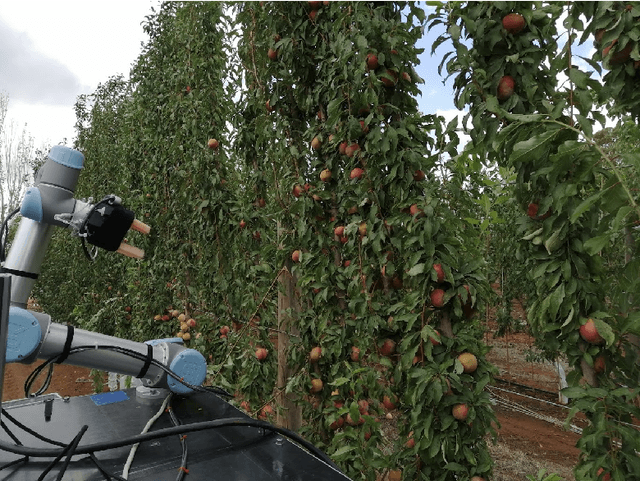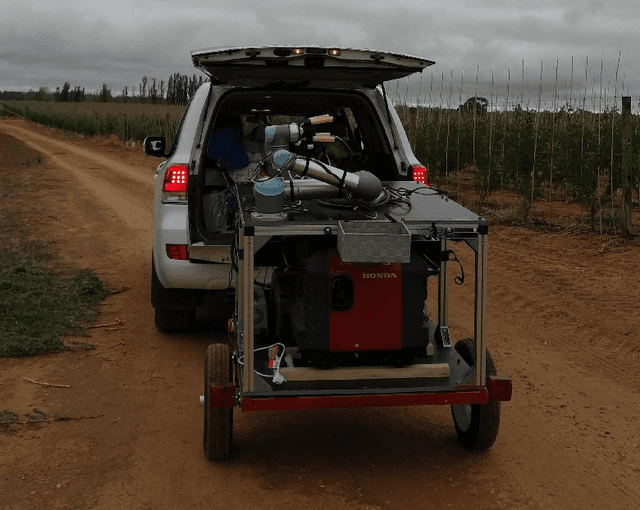Design and Evaluation of a Modular Robotic Plum Harvesting System Utilising Soft Components
Paper and Code
Jul 13, 2020



The human labour required for tree crop harvesting is a major cost component in fruit production and is increasing. To address this, many existing research works have sought to demonstrate commercially viable robotic harvesting for tree crops, though successful commercial products resulting from these have been few and far between. Systems developed for specific crops such as sweet peppers or apples have shown promise, but the vast majority of cultivar types remain unaddressed and developing a specific system for each one is inefficient. In this work a flexible and modular development platform is presented, this can be used to test specific design choices on different fruit and growing conditions. The system is evaluated in a commercial plum orchard, with no crop modifications. Some existing techniques are found to be counterproductive for plums, while soft robotics and persistent target tracking significantly improve performance. A harvest success rate of 42% was observed, with lower than expected effectiveness based on prior testing with apples. The plum type and growing style pose unique challenges which are examined in the context of system module design choices.
 Add to Chrome
Add to Chrome Add to Firefox
Add to Firefox Add to Edge
Add to Edge